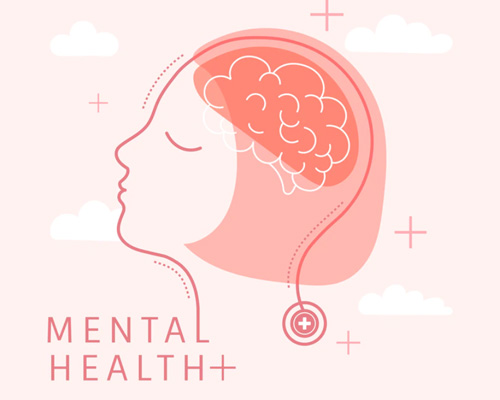-
-
Phone 289-748-2450
Mental health and gut microbiota

Taking care of our health also means taking care of mental health. According to recent advances, it is related to the intestinal microbiota. In fact, a dysfunction in the brain-gut axis could influence neuropsychiatric problems, such as depression, autism or attention problems, among others.Do you want to know more about the relationship between mental health and the intestinal microbiota? Keep reading: we tell you everything you need to know.
The gut-brain axis: how it works
Our intestine contains 200 million neurons, in addition to thousands of intestinal bacteria, presenting constant communication with the brain. Thus, when the intestinal microbiota is altered, we see how an inflammatory process occurs that can block said communication.
It should be noted that intestinal bacteria communicate with the brain through the production of chemical molecules called "neurotransmitters", such as dopamine and serotonin, and carry out important functions for brain development, such as:
- memorization _
- The formation of new brain neurons
- Regulation of cortisol secretion
- It is the establishment of new neural connections
- social behavior
The impact of the gut microbiota on mental health
Alterations in the intestinal microbiota in children, during their first years of life, can change brain structures and functions, favoring the appearance of developmental disorders, such as autism spectrum disorder (ASD). In fact, recent studies have seen how autistic children could present a less diverse flora than that of children who do not have ASD, as well as a higher proportion of Candida.
It is worth highlighting the recent development of an algorithm, which is showing high reliability, which allows the detection of new markers of autism in the oral flora. In these cases, probiotics could help, improving the intestinal microbiota and its communication with the brain.
In addition, diseases such as depression, anxiety or bipolar disorder are increasingly present in our society. In these cases, intestinal dysbiosis could also be involved, by altering the stress response, increasing inflammatory activity, and increasing the permeability of the intestinal wall. Regarding this problem, the role of the microbiota, capable of exerting an anxiogenic effect, as well as an anxiolytic effect, is noteworthy.
Recent studies with promising results have shown how prolonged intake of psychobiotics could help reduce depressive symptoms and reduce psychological distress without presenting any type of side effect.
These are living organisms that provide multiple benefits to people suffering from some type of mental illness/disorder, and can act as a complement to antidepressant and anxiolytic treatment for these patients.
The importance of the brain-gut axis in our health is evident, which is why more studies are necessary to help us better understand the influence of the microbiota on mental health, and how probiotics can play an important role in this relationship. Do you have doubts about the relationship between mental health and probiotics? Ask us!
Looking for best walk in clinic or family doctor in Brampton, Mississauga and Vaughan? Vanrose Pharmacy & Medical Center is the best option for you.




